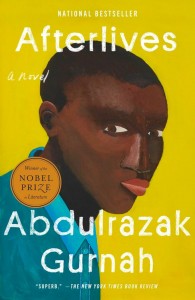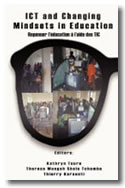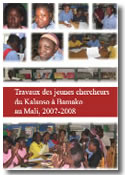Decolonization and Memory: Learning from History to transform the Future March 9, 2025
 “Where to start with decolonization?” I hear people ask. “Can there be just one starting point?” I think. Colonization is so pervasive and crosses borders. So must we not cross borders in decolonizing? From our minds to our relations and societal structures? Can we say I begin here and not there? Even when we begin here — inside ourselves — are we not already beginning to raise consciousness and shift colonial relations and hierarchies of power with others and within structures and systems?
“Where to start with decolonization?” I hear people ask. “Can there be just one starting point?” I think. Colonization is so pervasive and crosses borders. So must we not cross borders in decolonizing? From our minds to our relations and societal structures? Can we say I begin here and not there? Even when we begin here — inside ourselves — are we not already beginning to raise consciousness and shift colonial relations and hierarchies of power with others and within structures and systems?
For me an important starting point or piece of the complex puzzle is history. Learning history. Not ignoring what has happened in the past and that is influencing the present and future. How can we break and disrupt patterns that have been instilled in us and in society if we are not aware of them?
Why are education systems the way they are? Global financial institutions the way they are? The police the way they are?
Reading “Afterlives” by Abdulrazak Gurnah exposed me to a lot of history of how World War I was fought in current-day Tanzania: “fighting everywhere with many casualties, German, British, South African, Indian, but most of them African.” So many Africans killed “to settle this European quarrel.” (Gurnah, p. 111)
“The fact that the colonial administrative area of Dodoma in what is now Tanzania lost 20% of its population in 1917/18 gives some indication of the deprivation and misery. Historians estimate that a million people died in East Africa as a direct result of the war.”*
But who knows the names of these Africans? Do they count? One book club member said, “We need to remember ourselves.”
“In today’s Tanzania, which made up a large part of the former colony of German East Africa, the 1914-1918 war is largely absent from public consciousness.” And “WWI features less and less in school curricula.”*
Is that partly why Gurnah wrote “Afterlives”? To bring that history more into the present? To enhance understanding of how Africa and Africans engaged and suffered in this war, and carried trauma from one generation to the next, and persevered in spite of it all?
We have in the compelling novel by Gurnah the example of Ilyas who goes in search of the story of his uncle, who went to fight with the Germans. He brought that hi/story back to his family, to his people, to help with healing. What can we learn from the story of his uncle? And the stories of those who fought alongside him with the Europeans or in resistance to European colonization? And from the everyday lives and experiences of those that lived through World War I as fought in Africa?
Let us Decolonize, Humxnize by decolonizing our minds à la Ngugi wa Thiong’o (1986). Let us shift the future by drawing on history, recognzing patterns of oppression, disrupting them, and creating shifts in consciousness and structures.
* https://lnkd.in/ezZUaQpd


